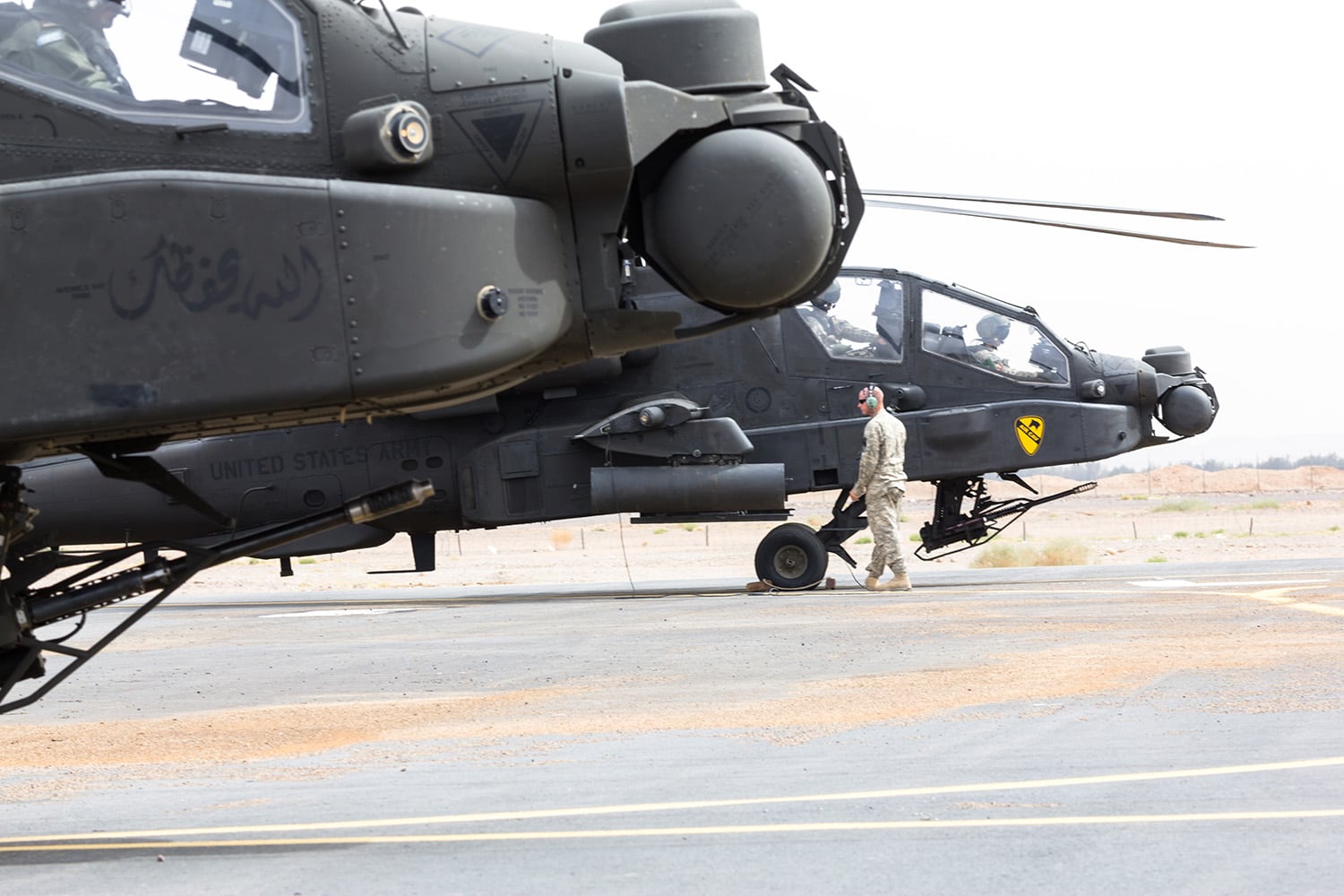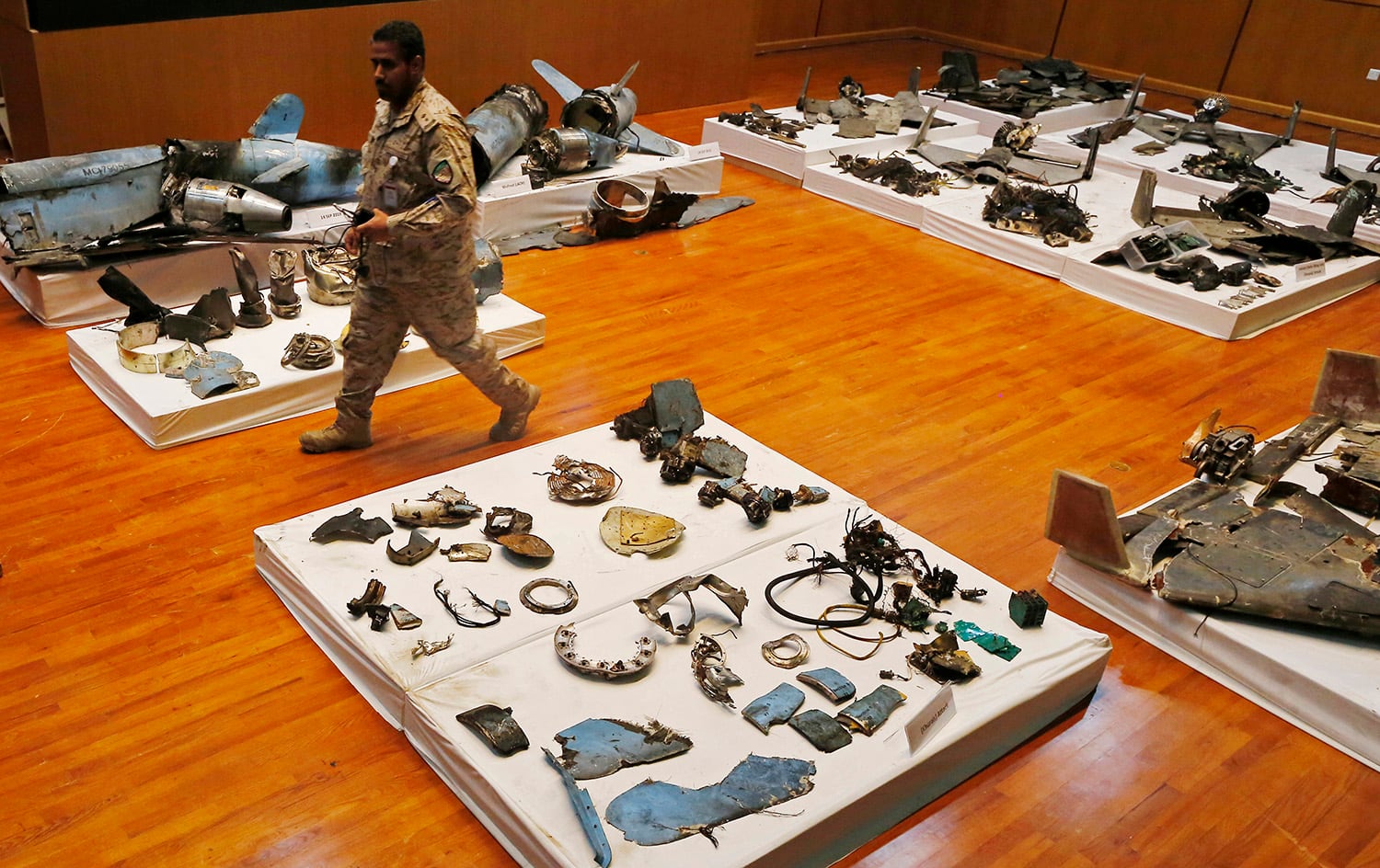The U.S. is preparing to deploy troops to the Middle East as a response to what officials have deemed an Iran-based attack on Saudi Arabian oil fields last week, Defense Secretary Mark Esper told reporters Friday in a Pentagon briefing.
The number, origin and destination of those troops is to be determined, he said.
“This is the first step we’re taking with regard to responding to these attacks,” Esper said, not ruling out further escalation if the deployment does not deter further aggression from Iran.
The announcement came after a meeting with top Pentagon officials and the National Security Council on Friday afternoon.
The troops deployed will be “defensive in nature,” Esper said, and focused on air and missile defense capabilities.
“I’ll talk to Central Command over the weekend, I’ll talk to our Saudi partners, and we’ll work the details of that,” Chairman of the Joint Chiefs of Staff Gen. Joseph Dunford said, adding that details would be available early next week.
The U.S. already sent about 500 troops to Saudi’s Prince Sultan Air Base this summer, the first such deployment since the U.S. stopped sending troops there after the Iraq invasion.
“U.S. Central Command continually assesses force posture in the region and is working with Kingdom of Saudi Arabia authorities to base U.S. assets at the appropriate locations,” CENTCOM spokeswoman Maj. Beth Riordan told Military Times on Monday. "The Prince Sultan Air Base enhances our defensive capabilities, operational flexibility, and increases our logistical resiliency.”
The deployment would be in the hundreds, not thousands, Dunford clarified.
“We think, given the state of play now, and then based on whatever assessments we get from Central Command … we think for now, that would be sufficient, but that doesn’t mean ― there could be additional deployments as needed, based on the changing situation,” Esper added.
The oil field attacks came after a series of belligerent moves by Iran this year, which Esper characterized as an increasingly isolated nation heading toward economic collapse.
Tensions have escalated with Iran during the Trump administration, who withdrew from the 2015 Iran nuclear deal that is formally the Joint Comprehensive Plan of Action. The deal put limits on Iran’s nuclear program, and lifted crippling sanctions.
The country has also been supporting an insurgency against Yemen’s government, in addition to seizing a British oil tanker in July and attacking both a Japanese and Norwegian oil tanker in June.
“What we would be deploying to the theater would be what would be necessary to support and contribute to the kingdom’s defenses,” Esper said, before encouraging allies in the region to step up to condemn the attacks and come to the country’s aid, as well.
RELATED

An investigation on the ground in Saudi Arabia has determined the weapons used were Iranian-produced and not launched from Yemen, as some have suggested.
“All indications are that Iran was responsible for the attack,” Esper said.
In response to a question of whether the Pentagon would declassify some of that evidence, to prove to allies that Iran is truly responsible, Esper doubled down on his call for support from other nations.
“Regardless of where you think it came from, the Saudis were attacked by both drones and cruise missiles, and are still vulnerable to attack,” he said. “I don’t think it’s too much to ask in this situation.”
Meghann Myers is the Pentagon bureau chief at Military Times. She covers operations, policy, personnel, leadership and other issues affecting service members.





